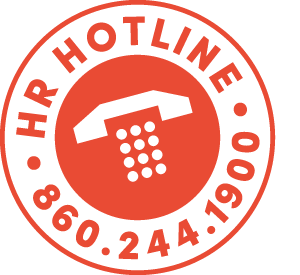HR Hotline: Is an Employee Eligible for Paid Leave if Offered Remote Work?

Q: Is an employee eligible for paid leave under the Families First Coronavirus Response Act if childcare is unavailable? Are they eligible for paid leave if offered the option of working from home?
A: The U.S. Department of Labor has addressed these questions in several of the agency’s online FAQs.

Emergency paid sick leave and expanded paid FMLA under the FFCRA is available for up to 12 weeks at two-thirds pay for employees who have to care for their minor children whose school or child care program is closed, or whose childcare provider is unavailable due to COVID-19.
Childcare programs include day care facilities, preschools, before and after school care programs, schools, homes, summer camps, summer enrichment programs, and respite care programs.
A childcare provider includes individuals paid to provide childcare, like nannies, au pairs, and babysitters, as well as individuals who provide childcare at no cost and without a license on a regular basis, for example, grandparents, aunts, uncles, or neighbors.
Summertime is raising some interesting interpretive issues. Schools and many childcare programs typically close for the summer months, not a COVID-19 related closing, and therefore seemingly not a qualifying paid leave child care circumstance under the FFCRA.
However, working parents usually have other childcare arrangements in place so they can continue working during the summer.
These services, including informal, personal or family contacts (paid or unpaid), are likely to have also fallen through due to COVID-19.
Documentation
As a practical matter, it’s expected that the labor department and Internal Revenue Service will be practical and reasonable, and deem these disruptions to be covered paid leave circumstances, and the costs also recoverable via payroll tax credits.
And as with regular school and childcare facilities that have closed up to now, employers should still ask employees to identify and document to the extent feasible, both formal and informal childcare services that are closed or unavailable for the summer months due to a COVID-19 reason.
If an employer offers an employee the option of working from home and it is feasible to perform that work remotely, that is considered regular work to be paid regular wages (paid at 100% of the employee’s regular rate), and therefore not a situation covered by paid leave under the FFCRA.
If an employer offers an employee the option of working from home and it is feasible to work remotely, that is considered regular work.
If teleworking is possible, but outside the normal work schedule (for example, evenings), or for only a limited number of hours per day or on an intermittent basis, then those hours would be regular working time, paid with regular wages, and the time unable to work would be covered under the paid leave provisions of the FFCARA.
If remote work is not feasible due to the nature of the work or the employee is prevented from teleworking due to a COVID-19 related reason, including the lack of childcare due to COVID-19, it would then be paid leave under FFCRA.
As with other forms of FFCRA paid leave, employers should, at a minimum, obtain a statement from the employee describing the nature of the care obligations preventing remote work, in order to determine if it qualifies under the FFCRA, and to document the payroll tax credit recovery of the paid leave costs, thereby satisfying the IRS.
HR problems? Email or call Mark Soycher at the HR Hotline (860.244.1900) | @HRHotline
RELATED
EXPLORE BY CATEGORY
Stay Connected with CBIA News Digests
The latest news and information delivered directly to your inbox.


